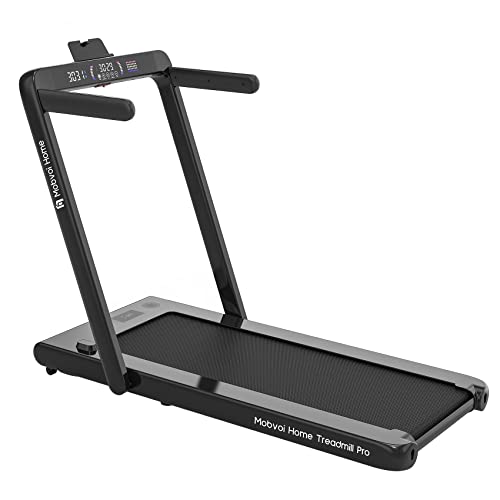What Are The Myths And Facts Behind Walking Machine
The Walking Machine: A Comprehensive Guide to Your Fitness Companion
In today's hectic world, where time is a high-end, preserving a constant exercise regimen can be an obstacle. For numerous, a walking machine— typically understood as a treadmill— acts as an ideal physical fitness buddy. This post supplies an in-depth look at walking machines, including their benefits, types, upkeep ideas, and frequently asked concerns.
Why Choose a Walking Machine?
Walking machines use a useful and efficient way to include cardiovascular exercise into every day life. Here are a number of crucial benefits:
- Convenience: Walking machines permit individuals to work out anytime, despite weather conditions or time constraints. ludvik.top are perfect for busy schedules.
- Flexibility: Users can walk, jog, or run at their own pace and intensity.
- Safety: Walking machines provide a lower danger of injury compared to outdoor walking or running, especially for novices or those recuperating from injuries.
- Tracking Progress: Many treadmills come with built-in screens that track metrics like speed, distance, and calories burned.
Kinds Of Walking Machines
When considering a walking machine, it's important to choose the right type based on specific physical fitness goals and space restrictions. Below are the primary kinds of walking machines:
Type
Description
Handbook Treadmills
These machines do not have a motor, and users require to walk or go to rotate the belt.
Electric Treadmills
Powered by an electric motor, enabling users to set the speed and incline effortlessly.
Folding Treadmills
Developed for simple storage, these treadmills can be folded when not in use.
Desk Treadmills
Ideal for a dual work and workout environment, these compact machines enable walking while working.
Incline Trainers
These enable users to replicate uphill walking, boosting workout strength and calorie burn.
Choosing the Right Walking Machine
Choosing the best walking machine can substantially impact inspiration and effectiveness. Here are some elements to consider:
Key Features to Look For
- Motor Power: An effective motor guarantees a smooth and consistent exercise. For occasional walkers, a 1.5 HP motor is usually adequate; for heavier use, search for 3.0 HP and above.
- Belt Size: A wider and longer belt offers more area for a comfy stride. Standard sizes vary from 16 inches wide and 50 inches long.
- Incline Options: Adjustable incline settings can imitate walking or running uphill, increasing the strength of the exercise.
- Shock Absorption: Good shock absorption lowers the danger of joint injuries and improves comfort.
- Console Features: Look for built-in workouts, heart rate displays, and connectivity features like Bluetooth for a more interesting experience.
Budget plan Considerations
Walking machines can be found in a wide variety of prices, depending upon functions and building quality. Here's a rough budget plan breakdown:
Price Range
Functions
Under ₤ 300
Fundamental handbook or small electric treadmills with minimal features.
₤ 300 – ₤ 700
More advanced electric treadmills with slope, medium power motors, and much better guarantees.
₤ 700 – ₤ 1500
Premium electric treadmills with larger integrated screens, extensive features, and service warranties.
₤ 1500 and above
High-end models providing sophisticated innovation, features, and durable building and construction for serious fitness lovers.
Maintenance Tips for Your Walking Machine
To guarantee durability and optimal performance of a walking machine, consider the following maintenance suggestions:
- Regular Cleaning: Dust and sweat can build up on the machine and the belt. Wipe down the surfaces and tidy the belt regularly.
- Lubrication: Depending on the design, lubing the running belt occasionally can prevent wear and tear. Inspect the manufacturer standards for recommended lubrication schedules.
- Assessment: Periodically examine the machine for loose screws or used parts. Tighten up and change as needed.
- Calibration: Occasionally, check the calibration of your machine's metrics to guarantee they supply accurate data.
- Correct Use: Follow the maker's suggestions for weight limitations and operational standards.
FAQs About Walking Machines
1. Are walking machines an excellent exercise?
Yes, walking machines provide an exceptional cardiovascular workout, can assist with weight loss, and enhance general health.
2. How often should I utilize a walking machine?
Go for at least 150 minutes of moderate-intensity aerobic activity per week, which can quickly be accomplished with regular sessions on a walking machine.
3. Can I drop weight on a walking machine?
Yes, incorporating a walking machine routine into a healthy diet can promote weight-loss, specifically if combined with intervals and incline training.
4. Is it safe for elders to use a walking machine?
Yes, walking machines can be safe for elders with low-impact settings and security features like handrails. Nevertheless, individuals need to seek advice from their doctor before starting any exercise program.
5. What's the difference in between a treadmill and a walking machine?
The term “walking machine” usually describes a treadmill intended for walking, while “treadmill” can describe machines utilized for various intensities, including running.
With their flexibility and benefit, walking machines can considerably boost one's physical fitness journey. By carefully choosing the right type, making sure appropriate upkeep, and incorporating various workout methods, users can maximize their walking machine's benefits. Just like any exercise program, consistency is essential to attaining lasting physical fitness results.
